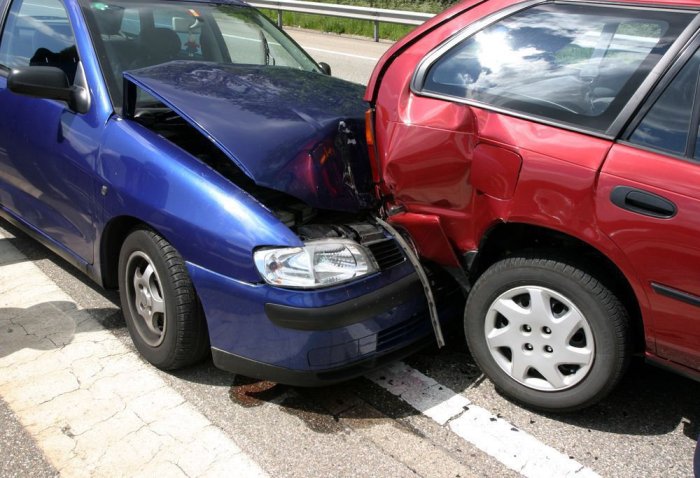With PIP insurance for rideshare drivers at the forefront, this article dives into the essentials of coverage, regulations, benefits, and costs, providing a comprehensive guide for drivers navigating the world of insurance.
Understanding PIP Insurance: PIP Insurance For Rideshare Drivers

What is PIP Insurance for Rideshare Drivers?
Personal Injury Protection (PIP) insurance is a type of coverage that provides medical and lost wage benefits to drivers and passengers in the event of an accident, regardless of who is at fault. For rideshare drivers, PIP insurance can offer financial protection in case of injuries sustained while driving for a ridesharing company.
Understanding the difference between liability and comprehensive insurance is crucial for car owners. While liability insurance covers damages to others, comprehensive insurance provides coverage for damages to your own vehicle as well. On the other hand, commercial liability car insurance is designed for businesses that use vehicles for work purposes. It offers protection in case of accidents during work-related activities.
When considering insurance options, it’s essential to know the average liability insurance costs to make an informed decision.
Coverage Provided by PIP Insurance
- Medical Expenses: PIP insurance typically covers medical bills resulting from injuries sustained in a car accident, including hospital stays, surgeries, and rehabilitation.
- Lost Wages: In the event that a rideshare driver is unable to work due to injuries from an accident, PIP insurance can provide coverage for lost wages during the recovery period.
- Funeral Expenses: PIP insurance may also cover funeral expenses in the unfortunate event of a fatal accident.
- Essential Services: Some PIP policies may include coverage for essential services such as childcare or housekeeping if the injured driver is unable to perform these tasks.
Importance of PIP Insurance for Rideshare Drivers
PIP insurance is crucial for rideshare drivers as it offers additional protection beyond the basic liability coverage required by ridesharing companies. In the event of an accident, PIP insurance can help cover medical expenses and lost wages, ensuring that drivers have access to necessary healthcare and financial support during a challenging time. By having PIP insurance, rideshare drivers can have peace of mind knowing that they are financially protected in case of unexpected accidents.
Understanding the difference between liability and comprehensive insurance is crucial for car owners. While liability insurance covers damages to other parties, comprehensive insurance provides coverage for damages to your own vehicle. To learn more about the distinctions between the two, check out this informative article on Difference between liability and comprehensive insurance.
Requirements and Regulations
When it comes to Personal Injury Protection (PIP) insurance for rideshare drivers, there are specific requirements and regulations that need to be followed to ensure compliance with the law.
Specific Requirements for Rideshare Drivers
- Rideshare drivers are typically required to carry PIP insurance to cover medical expenses for themselves and their passengers in the event of an accident.
- The coverage limits for PIP insurance may vary depending on the state and the rideshare company’s policies.
- Drivers may need to provide proof of PIP insurance coverage to the rideshare company they are affiliated with.
Comparison of Regulations Across Different States
- Each state has its own regulations regarding PIP insurance for rideshare drivers, including minimum coverage requirements and eligibility criteria.
- Some states may require rideshare drivers to carry higher PIP coverage limits compared to regular drivers due to the nature of their work.
- It is important for rideshare drivers to be aware of the specific PIP insurance regulations in the states where they operate to avoid any legal issues.
Legal Consequences of Not Having PIP Insurance
- Failure to carry the required PIP insurance as a rideshare driver can result in fines, license suspension, or even legal action in some states.
- In the event of an accident, not having PIP insurance can leave drivers vulnerable to significant out-of-pocket expenses for medical bills and other related costs.
- Rideshare drivers should prioritize obtaining and maintaining the necessary PIP insurance coverage to protect themselves and their passengers while on the road.
Benefits of PIP Insurance

As a rideshare driver, having Personal Injury Protection (PIP) insurance can offer several advantages and provide financial protection in various situations. Here are some key benefits of having PIP insurance:
1. Medical Expense Coverage, PIP insurance for rideshare drivers
- PIP insurance can help cover medical expenses for you and your passengers if you are injured in an accident while driving for a rideshare company.
- It can cover a range of medical costs, including hospital bills, doctor visits, surgery, rehabilitation, and other necessary treatments.
2. Lost Wages Reimbursement
- If you are unable to work due to injuries sustained in a rideshare-related accident, PIP insurance can help reimburse lost wages during your recovery period.
- This financial support can help you cover your regular expenses and maintain your financial stability while you are unable to work.
3. Coverage for Uninsured or Underinsured Drivers
- In the unfortunate event that you are involved in an accident with an uninsured or underinsured driver, PIP insurance can step in to cover your medical expenses and lost wages, providing you with much-needed protection.
- It ensures that you have a safety net in place even when the at-fault driver lacks sufficient insurance coverage.
Cost and Coverage Options

When it comes to PIP insurance for rideshare drivers, understanding the cost and coverage options is essential for making informed decisions. Let’s delve into the different aspects of cost and coverage available for PIP insurance in this context.
Cost of PIP Insurance
- PIP insurance for rideshare drivers may vary in cost compared to other types of insurance such as liability or comprehensive coverage.
- The cost of PIP insurance can depend on factors like the driver’s location, driving history, vehicle type, and coverage limits.
- It’s important for rideshare drivers to compare quotes from different insurance providers to find the most cost-effective option that meets their needs.
Coverage Options for PIP Insurance
- PIP insurance offers coverage for medical expenses, lost wages, and other related costs resulting from a car accident, regardless of fault.
- Rideshare drivers can choose different coverage limits for their PIP insurance based on their individual needs and budget.
- Additional coverage options may include coverage for passengers in the vehicle at the time of the accident.
Factors Affecting the Cost of PIP Insurance
- Driving record: A history of accidents or traffic violations can increase the cost of PIP insurance for rideshare drivers.
- Location: The area where the driver operates the rideshare business can impact the cost of insurance due to varying risk factors.
- Vehicle type: The make, model, and age of the vehicle can influence the cost of PIP insurance, with newer or high-value vehicles typically requiring higher premiums.
- Coverage limits: Opting for higher coverage limits can result in higher premiums, while choosing lower limits may reduce costs but offer less protection in case of an accident.
In conclusion, PIP insurance for rideshare drivers is a crucial financial safety net that offers peace of mind and protection in times of need. By understanding the requirements, benefits, and costs associated with PIP insurance, drivers can make informed decisions to safeguard their well-being on the road.
For businesses that rely on vehicles for their operations, commercial liability car insurance is a must-have. This type of insurance protects companies from financial losses in case of accidents or damages involving their commercial vehicles. To explore more about commercial liability car insurance, click on this link: Commercial liability car insurance.
Understanding the average liability insurance costs can help individuals make informed decisions when purchasing insurance. Factors such as age, driving record, and coverage limits can impact the overall cost of liability insurance. To get a better idea of the average costs involved, refer to this detailed article on Average liability insurance costs.



